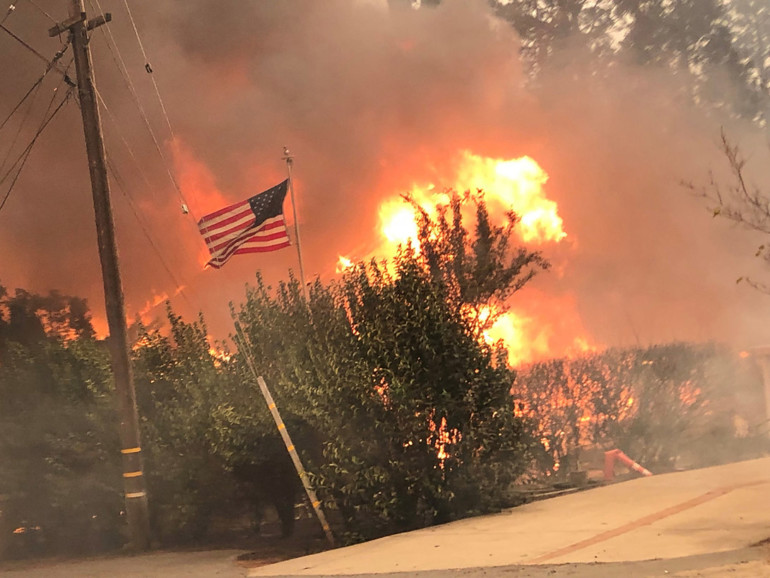The rapidly spreading Kincade Fire started on Wednesday, Oct. 23, forcing approximately 180,000 people from their homes in Sonoma County. High winds and dry conditions are continuing to make the situation worse.
Wildfire has become a part of California life, not only the fear of devastation, but the reality. We know it could be us. We have family, friends and colleagues deeply affected by these fires, and our hearts break for them. With the disastrous Camp Fire still fresh in our minds, which destroyed the community of Paradise in Butte County last year, we all want to help in any way we can, as we know our neighboring counties would do for us if wildfire ever arrives here.
While Marin has so far been mostly spared, (except for the Muir Fire on October 24 ), we all need to remain vigilant and be prepared. Marin remains vulnerable to fast-moving wildfires as its nature-loving population likes to live near open spaces.
Wildfire Preparedness:
Here are a few steps Marin County residents can take to be prepared:
- Residents should register their contact information with the Alert Marin notification system, overseen by the Sheriff’s Office of Emergency Services.
- Learn more about fire safety and emergency kits on the FIRESafe Marin and Ready Marin websites.
- Residents can help first responders gain access during a wildfire by using proper vegetation management, maintaining defensible space around homes and keeping driveways and roads clear. “Most times when we lose houses in fire sieges, it’s from ember showers — it isn’t from a fire front,” says Marin County Fire Chief Jason Weber.
Wildfire Safety:
Here are a few tips from the American Red Cross:
- Listen to local area radio, NOAA radio or TV stations for the latest wildfire information.
- Be prepared to evacuate at a moment’s notice – use the map below to track current fires and find open shelters.
- Check your emergency kit and replenish any items missing or in short supply, especially medications or medical supplies.
Additional resources: Ready.gov, National Fire Protection Association
Ways to Help:
Here are a few of the major charities that need help during the fires. For a more comprehensive list, please see the information we have provided from Sonoma Magazine here.
Donate:
- Founded in 2003, the California Community Foundation Wildfire Relief Fund supports intermediate and long-term recovery efforts in the aftermath of major California wildfires, as well as preparedness efforts across the state.
- Looking to offer direct support to the families of fallen firefighters or firefighters currently on the front lines? Visit the California Fire Foundation.
- Support disaster victims with a financial donation to the Red Cross, which they can use for what they need most. Go to redcross.org, call 1-800 RED CROSS or text the word REDCROSS to 90999 to make a $10 donation.
- Undocufund is collecting donations the help undocumented immigrants that have been displaced by the fire. You can donate here.
- World Central Kitchen is providing food to keep firefighters strong and fed as they battle the blaze. You can donate, or volunteer yourself, here.
Animal Services:
- Help animals affected by the fires by supporting the Humane Society. Bring needed items to the Marin Fairgrounds in San Rafael. They mostly need kitty litter, as well as metal crates of all sizes, dry cat and dog food in medium or smaller bags (no 40lbs+ bags), and clean towels. They cannot accept any pet beds, blankets or wet food.
- Sonoma County Animal Services is focused on ensuring the safety and welfare of domestic animals and livestock during the fires. They can are accepting monetary donations, which can be made here.
Volunteer:
- Contact the Red Cross. 90% of the Red Cross workforce are volunteers, and they use both Disaster Relief and Blood Drive volunteers. In addition to training to volunteer with the Red Cross, giving blood is an important way to contribute, as blood drives are often canceled due to wildfire and blood is always needed.
- People interested in volunteering should also go to the Volunteer Center of Sonoma County website.
- Airbnb hosts can offer free housing to those in need through their Open Homes program. If you have a space for evacuees or relief workers, sign up here.


